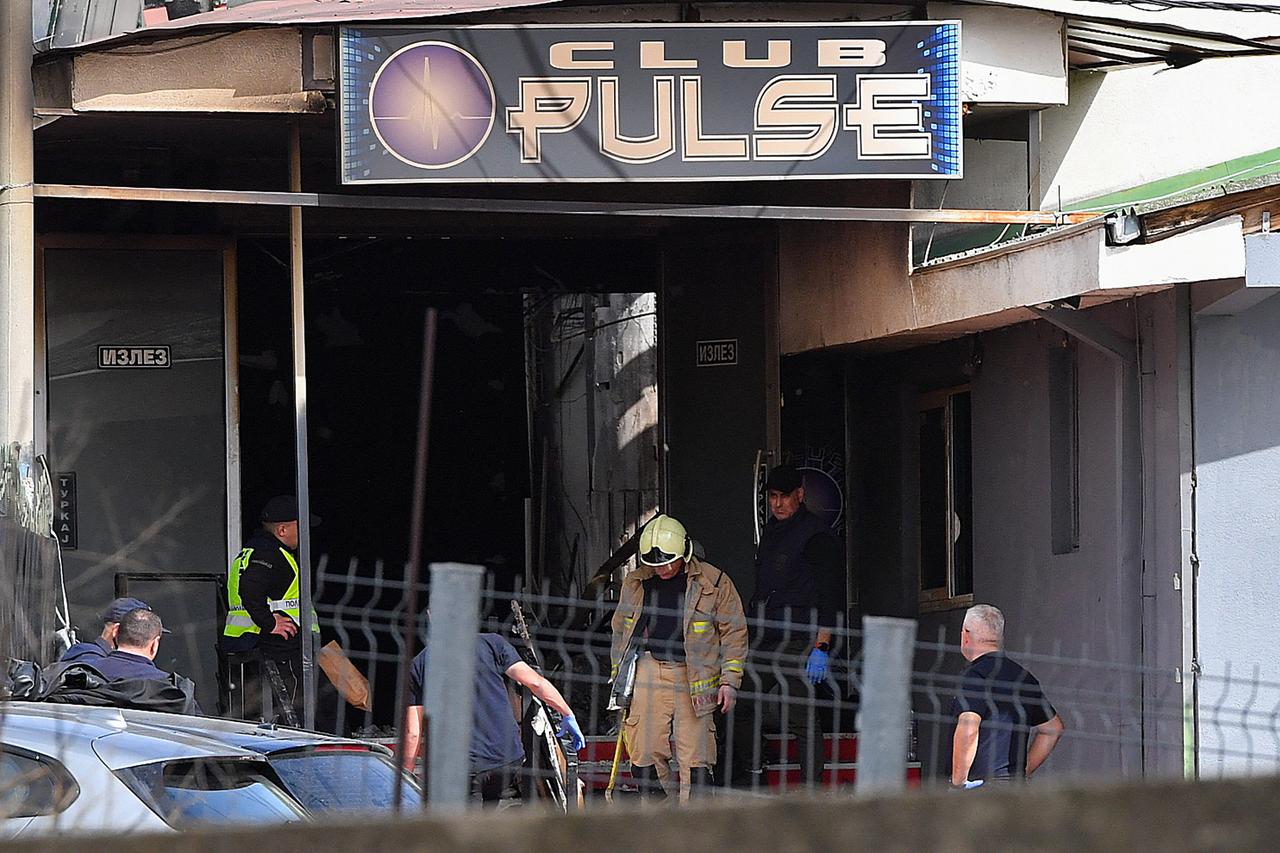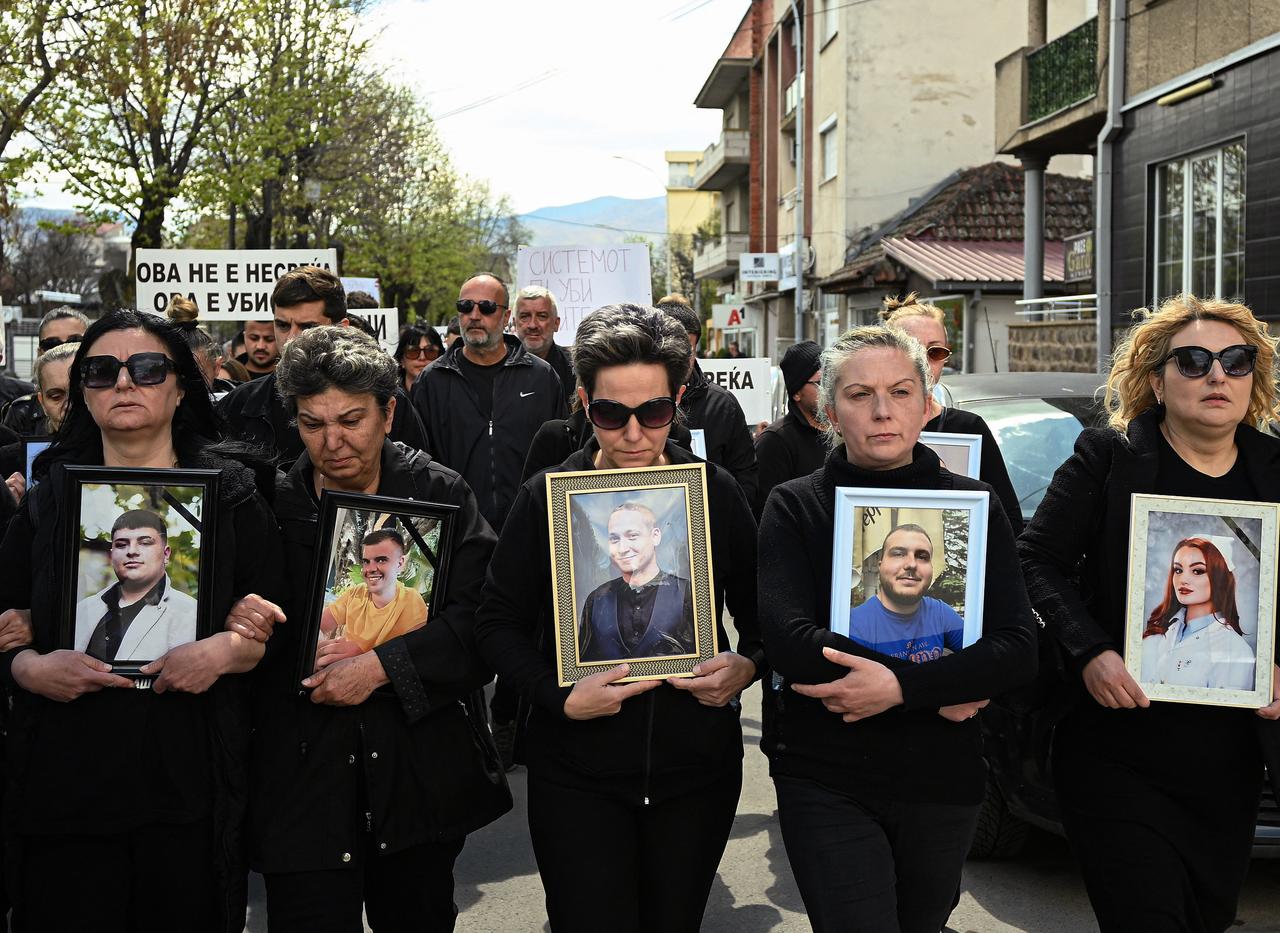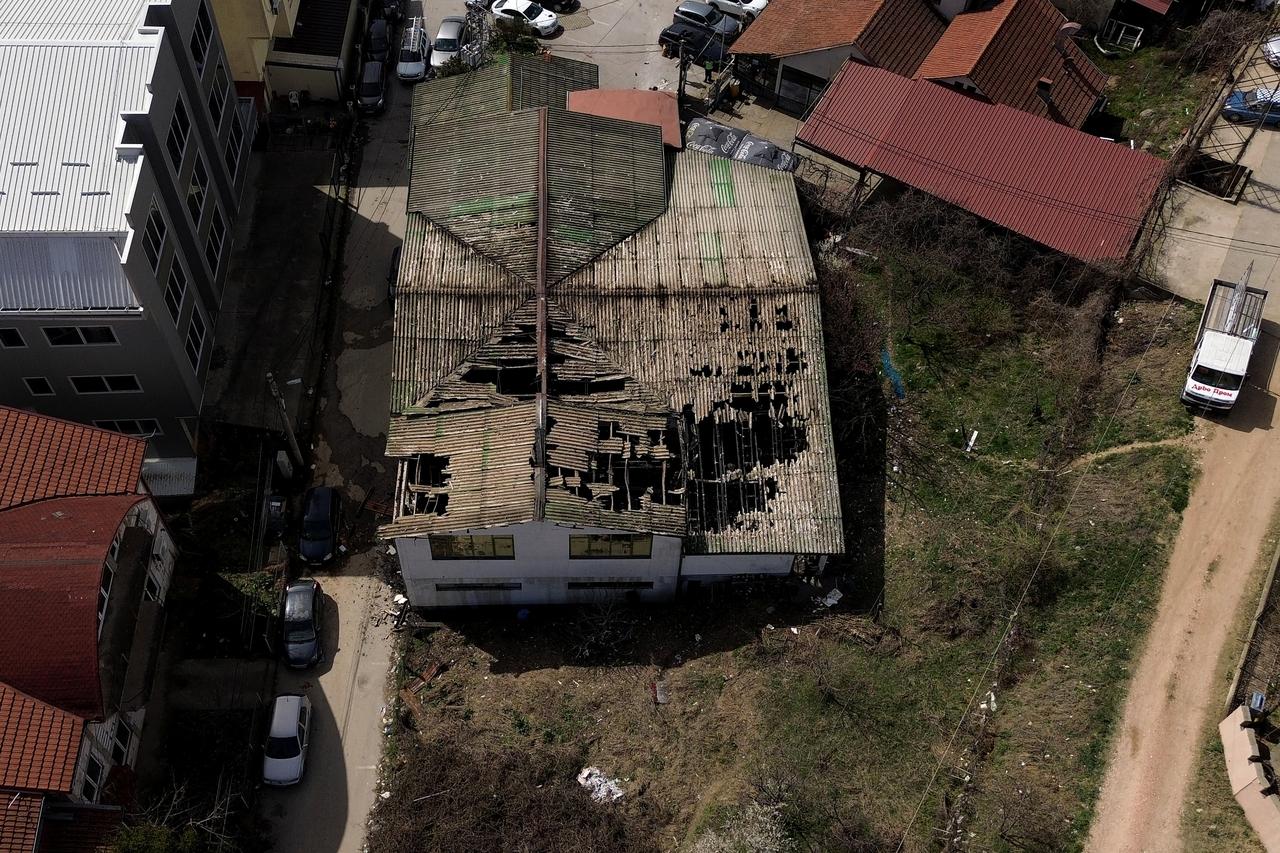
A trial over a deadly nightclub fire that killed 63 people earlier this year is set to begin Wednesday in North Macedonia, with dozens of defendants expected to face court in one of the country’s most high-profile cases.
The fire broke out during a hip-hop concert at the overcrowded Pulse nightclub in the eastern town of Kocani on March 16, triggering a stampede that left more than 200 others injured.
Nearly eight months later, families of the victims continue to organize weekly marches demanding justice and a swift judicial process. Many are expected to attend the trial, which will be held in one of the country’s largest courtrooms.

At a protest on Saturday, several thousand people marched from central Skopje to a nearby court building to renew calls for accountability. Most of the victims were teenagers or in their early 20s.
Parents of those killed led the march, carrying a banner with photos of the victims and the words: “63 shadows will be following you, every look seeks justice.”
“We demand a trial without delay, without pressure, without concealing evidence,” Rozeta Djamova, the sister of one of the victims, told reporters during the protest.

Families have also called on lawmakers to launch a special parliamentary inquiry into the fire, in addition to the criminal proceedings.
“We demand the truth,” said Natalija Gjorgjieska, the wife of one of the performers who died in the blaze.
The trial is expected to be one of the largest in North Macedonia’s history, drawing widespread media and public attention. Among the 35 defendants are former government ministers, three former mayors of Kocani, the nightclub’s owner, building inspectors, and club security staff.
All are charged with “serious crimes against public security,” according to the indictment, which alleges that nearly all regulations for operating a nightclub were ignored.
Given the scale of the case, a large courtroom inside the Idrizovo prison complex on the outskirts of Skopje has been designated for the proceedings. The facility is typically reserved for the country’s most serious trials.
The European Union has frequently criticized North Macedonia for delays and inefficiencies in its judicial system, and many observers fear the case could drag on for years. However, prosecutors said steps have been taken to avoid postponements and ensure a fast-track trial.
Chief Public Prosecutor Ljupco Kocevski said a team of 15 prosecutors would present the case against the accused.
“What the public rightly expects is not only speed, but also a quality procedure that will withstand the test of evidence, legal argumentation, and public trust,” said Darko Avramovski of the Blueprint Group, a coalition of legal advocacy organizations.